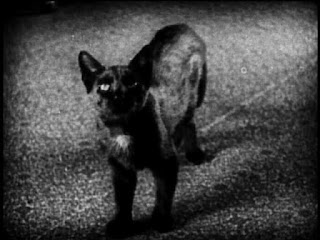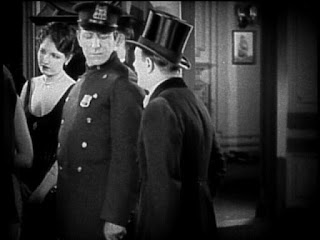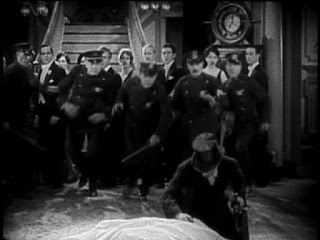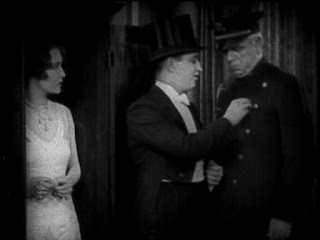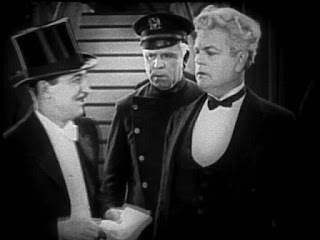A clip from youtube and a soundtrack from the Leni Riefenstahl collection, and Viola!

Here lies the residue of "The Animating Apothecary," a source of obscure ephemera and thought, while nibbling at the crustier extremes of an overbaked society. Instagram? see - https://www.instagram.com/animating_apothecary/ also check out asifa.org and asifa.net - content (c) 2006-2025 Jim Middleton
Wednesday, October 12, 2016
Tuesday, October 11, 2016
The Ranks are Thinning
There is no replacing a true friend. One can only remember, and if chilled, bundle up... a melancholy warmth can offer some comfort.
http://www.wmich.edu/news/2016/09/35347
BY JEANNE BARON
SEPTEMBER 30, 2016 | WMU NEWS
Margaret Jane Watson
Margaret Jane Watson, a former Western Michigan University staff member, died Sept. 26 at Rose Arbor Hospice in Kalamazoo from complications due to cancer. She was 61.
Watson joined the WMU staff in 1981 and retired in 2015 after more than 33 years of service to the University. The Kalamazoo resident began her WMU career as a clerk in University Libraries, where she had worked while a student at WMU.
She became supervisor of the Media Laboratory, a student-centered multimedia lab in the Division of Academic Services, in 1983 and classroom technology consultant in the Office of Information Technology in 2004.
MARGARET J. WATSON
In her technology consultant role, Watson's primary responsibility was to make sure that dozens of WMU's sophisticated technology carts were functioning properly for professors and instructors across all of the West Campus.
She monitored the carts from her office throughout her work day and was at the ready to trouble-shoot problems by phone or rush to classrooms when necessary. Just a few years into the job, some 700 faculty members were already incorporating the technology carts into their teaching.
As added services, Watson developed the original instruction manuals for each cart and provided one-on-one training for teachers at their convenience in the specific rooms where they would be using the carts.
She established strong relationships with faculty members during her time at the University and was an active volunteer. Notably, she served for several years on the Presidential Spirit Committee and was on the team that started Finals Finish, a longstanding multiday event that helped students weather final exam week.
Watson was born in East Jordan, Michigan, and worked as a librarian for Oneida High School in New York from 1977 to 1979.
She earned an associate degree in media technology from Ferris State University in 1975, a bachelor's degree in learning resource management from FSU in 1977 and a master's degree in library science from WMU in 1981.
REMEMBRANCES
No formal service is being held, per Watson's wishes. The family obituary and a personalized webpage where messages may be left is available through Penzien Funeral Homes at penzienfh.com.
Memorial gifts may be made to:
Hospice Care of Southwest Michigan
222 N. Kalamazoo Mall
Suite 100
Kalamazoo MI 49007-3882
BY JEANNE BARON
SEPTEMBER 30, 2016 | WMU NEWS
Margaret Jane Watson
Margaret Jane Watson, a former Western Michigan University staff member, died Sept. 26 at Rose Arbor Hospice in Kalamazoo from complications due to cancer. She was 61.
Watson joined the WMU staff in 1981 and retired in 2015 after more than 33 years of service to the University. The Kalamazoo resident began her WMU career as a clerk in University Libraries, where she had worked while a student at WMU.
She became supervisor of the Media Laboratory, a student-centered multimedia lab in the Division of Academic Services, in 1983 and classroom technology consultant in the Office of Information Technology in 2004.
MARGARET J. WATSON
In her technology consultant role, Watson's primary responsibility was to make sure that dozens of WMU's sophisticated technology carts were functioning properly for professors and instructors across all of the West Campus.
She monitored the carts from her office throughout her work day and was at the ready to trouble-shoot problems by phone or rush to classrooms when necessary. Just a few years into the job, some 700 faculty members were already incorporating the technology carts into their teaching.
As added services, Watson developed the original instruction manuals for each cart and provided one-on-one training for teachers at their convenience in the specific rooms where they would be using the carts.
She established strong relationships with faculty members during her time at the University and was an active volunteer. Notably, she served for several years on the Presidential Spirit Committee and was on the team that started Finals Finish, a longstanding multiday event that helped students weather final exam week.
Watson was born in East Jordan, Michigan, and worked as a librarian for Oneida High School in New York from 1977 to 1979.
She earned an associate degree in media technology from Ferris State University in 1975, a bachelor's degree in learning resource management from FSU in 1977 and a master's degree in library science from WMU in 1981.
REMEMBRANCES
No formal service is being held, per Watson's wishes. The family obituary and a personalized webpage where messages may be left is available through Penzien Funeral Homes at penzienfh.com.
Memorial gifts may be made to:
Hospice Care of Southwest Michigan
222 N. Kalamazoo Mall
Suite 100
Kalamazoo MI 49007-3882
Heroin Conference and "Next Steps" Summit - 14 October 2016
(With some pharmacy guy acting as a moderator during the break out sessions...)
Battle Creek, MI- Overdoses from heroin and prescription painkillers have killed an alarming number of Michigan citizens, destroying families and communities. To combat this issue, partners from Michigan State Police, Lakeshore Regional Entity and substance abuse prevention coalitions/councils from: Calhoun, Barry and Allegan counties partnered to plan a summit tackling this tough subject. It was the vision of this planning committee, to offer a venue where attendees can work together to create tangible next steps to synergistically address the epidemic that our communities are facing.
“This epidemic does not discriminate; All across the state, it is taking good people and leading them down a trail that often ends in pain and sadness,” said Lt. Pazder. More than just facts, this summit will have experts speaking on addiction and information to help participants know how to make an impact in their local community.
The speakers are Lt. Governor Brian Calley-Keynote, Bruce McColley -DEA-Assistant Special Agent in charge in Detroit, Abraham Azzam HIDTA Director and Deputy Director Craig Summers, and Dr. Weiner-board certified in Internal Medicine and Addiction Medicine-St. Joseph Mercy Hospital.
The conference has over 350 individuals registered from west and southwest Michigan. The conference takes place Friday October 14th from 9:00-3:00pm at Firekeepers Resort and Conference Center in Battle Creek.
(The actual count is 362! Woot Woot!)
See January 2017 post on some notes from the breakout session - it takes forever to get back to this blog, I swear!
Tuesday, May 10, 2016
Theodore Roosevelt on Liberty - 1916
Ah, politics and the strangeness of bedfellows. Republican Theodore Roosevelt made a speech 100 years ago about the abuse of industry upon hourly workers (the memory of the Triangle shirt factory fire was still fresh at that time) - and how we needed *more* government to protect the workers from the "liberty" demanded by these companies. Here's a 90 second excerpt from the 78rpm recording in my archives. Film from the Library of Congress was used for the background. I love history.
Let's see how this holds for a blog posting:
Let's see how this holds for a blog posting:
Sunday, May 01, 2016
Into the Liver of Darkness - A note from 1988
 |
| A 23,000 foot doodle. 1988 |
Jim woke at 23,000 feet to the conversation of the two businessmen sweating out the storm to his left, interrupting his recurring dream of three Mariachi singers with gold teeth and bad breath.
"...connect with our man in Houston and...just a minute, I think he's awake."
The two men reached for the nearest reading matter, one of them grabbing the complimentary travel magazine advertising bikini depilatories on the back, the other taking a keen interest in the instructions on the airsickness bag. The plane made a sudden dip. The instructions proved useful.
"Due to some unexpected turbulence, the captain has turned on the 'fasten seat belt' sign. We will be coming by shortly with beverages that you may spill on yourself." The attendant was speaking from the first class section. Only her sneakers were visible beneath the drapery.
"Pay no attention to the man behind the curtain," Jim mumbled to himself.
The businessman reading the magazine peered over the top. His partner momentarily paused in his search for a toothbrush.
"What did you say?"
"Excuse me?" said Jim.
"Just now. What did you say?"
"You mean, `pay no attention to the man behind the curtain?'"
The businessmen looked at each other nervously and turned back to Jim.
"I have no heart," said one.
"I have no brain," said the other.
"I see," said Jim.
They both leaned closer. Jim wished the one had found that toothbrush.
"I said, I have no heart," the first one insisted.
"And I have no brain." the second one repeated.
"I guess that means," Jim began as the two leaned still closer. "I guess that means I have no courage?"
"Comrade!"
"Brother!"
"You guys aren't Shriners, are you?" asked Jim.
The nearest one nudged Jim in the ribs and whispered conspiratorially, "I don't think we're in Kansas, anymore, you know."
"I think you've got me confused with your man in Houston."
He sat up. "You're not our man in Houston?"
"I'm not even your man over Houston."
The two began a heated debate in a dialect that ran from Slavic to Pig Latin. The one in need of a toothbrush lit a cigarette. The attendant appeared.
"Excuse me, sir, FAA regulations prohibit smoking on this flight."
"Away with you, Capitalist love doll."
The attendant called out to Mannie, an organically grown Neanderthal who lumbered down the aisle, ate the lit cigarette and the remaining pack, and sat on the offender.
"Mannie will keep you company until we land. Have a nice day."
At the gate in Houston, two hundred heavily armed FAA agents were waiting to escort the two men to a federally funded smoking rehabilitation center. That they were carrying documents implicating US involvement in an international Tofu ring seemed unimportant to them.
Jim awaited the next leg of his journey to Mexico at gate 32.
(May 1988; tale left unfinished)
Sunday, March 27, 2016
An Appreciation of Raymond Griffith - You'd Be Surprised (Paramount, 1926)
Along the lines of Richard Anobile:
First of all, my thanks for Grapevine Video, about the only available source for Raymond Griffith's films, for making these films available to current audiences. Check them out at www.grapevinevideo.com for many obscure titles that have been overlooked by others and have slid into the public domain...this particular DVD release is from a very good master print.
First of all, my thanks for Grapevine Video, about the only available source for Raymond Griffith's films, for making these films available to current audiences. Check them out at www.grapevinevideo.com for many obscure titles that have been overlooked by others and have slid into the public domain...this particular DVD release is from a very good master print.
"The most difficult, the most delicate, the most interesting, and a very worthwhile job is that of making people laugh." - Raymond Griffith
Here is where things quickly became interesting - by 1926, Robert Benchley was an established critic for Vanity Fair and had three volumes of essays to his credit. His "Treasurer's Report" had been a Broadway staple for some time and Jesse Lasky approached him to write screenplays. Not much seemed to come of this arrangement, but for You'd Be Surprised and two other Paramount films he did create the text for the title cards. This predates his own film appearances in The Treasurer's Report and Sex Live of the Polyp by two years.
Arthur Rosson comes to You'd Be Surprised after completing another Raymond Griffith film, Wet Paint, and a Bebe Daniels film, Stranded in Paris. He appears to have been a Paramount mainstay, with credits often intersecting with Cecil B. DeMille as a second unit director.
Another familiar name to film fans of the silent era is Dorothy Sebastian, known for her relationship with Buster Keaton and appearances in his films Spite Marriage, Free and Easy, and Allez Oop.
You'd Be Surprised plays out in real-time, in only three staged rooms. The image of the gigantic houseboat above is the only real exterior shot in the movie, and the use of an evening time frame further trims narrative expense. While it is a slickly made film, it was likely a comparatively inexpensive production for Paramount.
The film begins with a montage sequence stressing that an unlucky evening about to unfold.
Phonograph fans will quickly recognize the collectible dancing toy. a variation on "Ragtime Rastus." It linked to the turntable and, through gears beneath the device, made the toy dance. Other toys had a couple dancing the waltz or tango.
The cat continues its wanderings in the houseboat, with disasters in its wake....
Dropped bracelets...
A lost hand at cards...
A dropped compact, with resulting broken mirror...
But best, with a tete-a-tete being interrupted by the arrival of a wife...all in below-the-knee perspective...
And then, for a finale in this opening montage, a tap on the film's first victim.
Well, that pretty much telegraphs in what's about to happen.
And out the lights go...
That's character actor Roscoe Karns in the tuxedo. Known for his wise-cracking rapid banter in later movies, it's interesting to see him here in a silent film,
With the elevation of each arriving dignitary, the announcement becomes increasingly formal, but each time the verdict is the same - "Don't touch anything! This is a case for the coroner!"
And with that, the staging is set for the arrival of the star of the program, the coroner, preceded by the black cat -- Raymond Griffith. It's prescient to Groucho's arrival to head up Freedonia in Duck Soup, 7 years later...
Griffith cuts to the chase - a direct question to the first man he sees
If not you, then who?!
Benchley at work...
Everyone seems to be a straight man in this film, working up their most suspicious expressions....
Sebastian squeezes out every silent screen era signal of guilt and confusion.
There is a lot of back-and-forth business where Griffith takes and returns the badge of inspector, indicating his level of confidence, both for solving the situation and for likely making it to the theatre before opening curtian.
Sebastian's hysterics at being told she has just seen a dead body
Thirty years later, in Rear Window, Hitchcock would insert a series of expressionless shots of Jimmy Stewart and the audience would have different impressions of his emotional state based on what the reactive image would be - here, Sebastian holds the same stare, and Griffith's expression gradually transforms:
The coroner decides he must interview Ms. Sebastian in private.
Another direct question
The staging in this shot is quite nice, arms thrusting inward to touch the chafing dish.
The wounded hand is a ruse, of course, quickly uncovered.
Of course, that's a cue for the cat and a crashing glass globe to center stage.
A suspicious face from above....
And all try to flee through the room containing the first victim's body.
The victim's cuff reveals a smudge clue - a distinct fingerprint!
The lights go out and the cuff vanishes...
The lights go out and the collection of probable suspects vanishes
The cuff appears, but a pointed comment appears as well...
Wherever Griffith bends to the door, the knife instantly appears at that spot. Nice comic timing.
And then a LOT of cuffs appear...
In comes what appears to be a butler, but is also the human connected to the face in the skylight...he wanders through the scene, rather nonchalantly...
This is a good place to interject some contemporary notes on You'd Be Surprised, from Loew's Weekly of 1926:
"Laughs 'n Gasps Galore in Gay Griffith Farce"
"If you want to laugh one minute and gasp the next - see Raymond Griffith in You'd Be Surprised, which comes here next week. It is undoubtedly Griffith's best picture since his Paths to Paradise. As a "Sherlock Holmes" Ray goes through mental gymnastics in the untangling of a murder mystery which would do credit to any sleuth.
"It's hard to say which the picture contains more of -- laughs or thrills. Griffith, a coroner, tries to discover who killed the district attorney. Instead of solving the mystery he finds himself in the center of a dozen others, and also discovers that he has fallen in love with a girl whom everyone suspects as the criminal.
"The picture's ending will have to remain a mystery because Mr. Griffith has asked those who see the picture to refrain from telling their friends the real murderer's identity.
"Dorothy Sebastian, playing opposite Ray, makes a lovely foil for his emotions. Earl Williams enacts the deputy district attorney, and Edward Martindel, the attorney. Arthur Rosson, the director of Wet Paint, was again at the helm.
Some of the deaf mute scenes in You'd Be Surprised are among the funniest ever filmed."
Besides referring to Raymond Griffith as "Ray," this promotional piece shows some disconnect with the actual production - Martindel plays the houseboat millionaire, not a district attorney, nor is there a deputy district attorney character in the film. Perhaps the publicity was early in production, before the plotlines were completely worked out.
Paths to Paradise is available from Grapevine, but with a missing final reel (the film seems to end abruptly, but the general narrative is still understandable); Wet Paint seems to be among the legion of "lost films."
And the butler is deaf, and Griffith manages to communicate with him as the "coroner's jury" is brought into the main room. It's an enthusiastic scene, but not one at the level of hilarity described by the studio's promotional material....
The assembled coroner's jury, namely whoever would be walking the streets at night near a houseboat, is sworn in.
Griffith accommodates the jury by having a makeshift dinner.
The butler, now the coroner's assistant, will stand in for the first victim as Griffith tries to recreate the crime for the coroner's jury.
... with the same results...
Things aren't looking good for Sebastian with this exchange.
Pure Benchley
So even Griffith offers to take the place of the first victim for the re-enactment.
The jury frets for his safety...
The police won't permit a complete lights out!
The jury is dismissed at this latest twist in the case....
And Griffith has been among them the entire time.
The man's thumbprint matches the one on the purloined cuff....and it turns out it was the first person Griffith accused, 40 minutes earlier!
"How'd you do that!?"
And, suddenly, Richard Arlen, a year from starring in Paramount's Wings, shows up as a reporter!
For more information about Raymond Griffith, a good place to start is the 1975 book by Walter Kerr, The Silent Clowns in the chapter (#31 in the series!) entitled The Unexpected Raymond Griffith. Griffith's career didn't survive into the sound era due to damaged vocal chords that didn't permit him to speak above a whisper. His last role before the camera was as the dying soldier sharing a foxhole with Lew Ayres in 1930's All Quiet on the Western Front. He produced comedies through 1940, even serving (uncredited) as an electrician on The Wizard of Oz (!!!).
In addition to You'd Be Surprised, other films that remain available with Griffith also include Hands Up! and Paths to Paradise, where he stars, and White Tiger, Changing Husbands, and Miss Bluebeard, where he appears in secondary roles (all from Grapevine Video).
Subscribe to:
Posts (Atom)








































